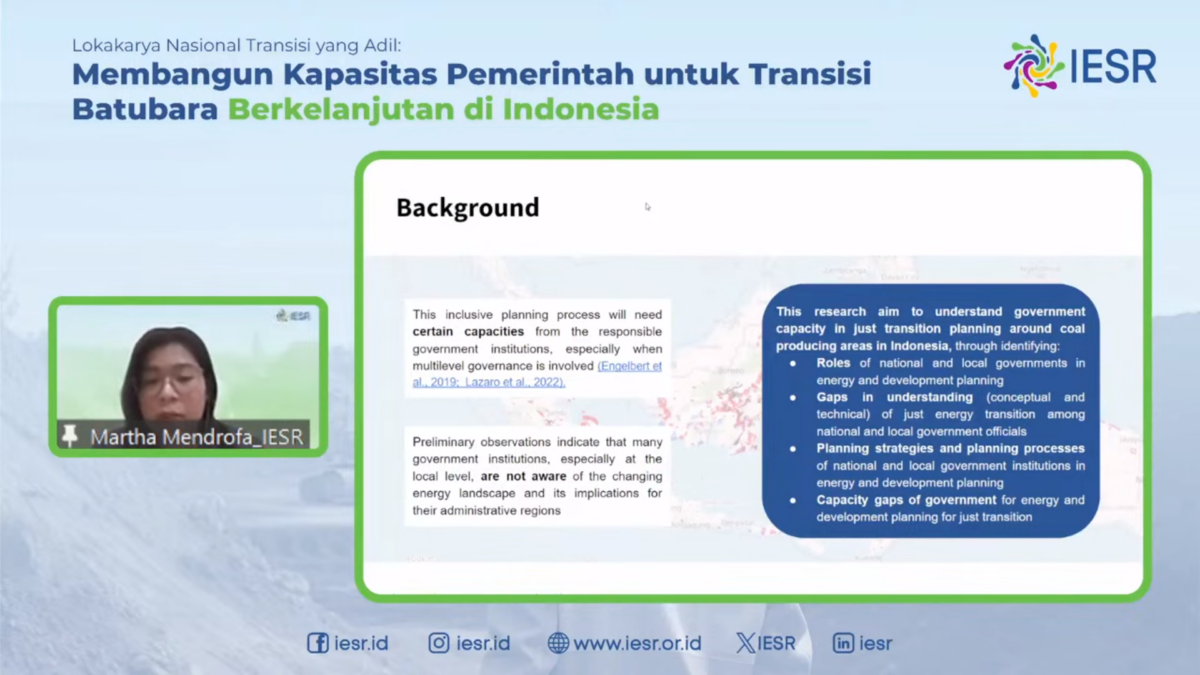Executive Director of the Institute for Essential Services Reform (IESR) Fabby Tumiwa, said that there are several things that Indonesia can do to achieve the net zero emission (NZE) target in 2060 or earlier.
Read more on Kompas.com.
President Joko Widodo (Jokowi) has instructed the installation of scrubbers at coal fired power plant (CFPPs) and a number of industrial plants as a measure to reduce air pollution. However, how efficient are these scrubbers in dealing with air pollution problems?
Read more on Berita Satu.
Although electricity tariffs from new and renewable energy (EBT) plants continue to decline from year to year, currently the price remains more expensive than coal plants that dominate electricity sources in the country. Understandably, the price of CFPP electricity is helped by coal subsidies in the form of a domestic price obligation (DPO) of US$…
The Cirebon 1 Coal Fired Power Plant (CFPP) will have its operational life shortened by seven years, and it is now expected to operate only until December 2035 instead of July 2042. The project has secured funding commitments from the Energy Transition Mechanism (ETM) scheme, and the transaction is expected to be finalized in the…
Indonesia will not put the early retirement of coal plants at the forefront of its emissions reduction ambitions and instead will focus more on controlling emissions from coal plants, which will remain operational until the end of their operational lifespans, the government said on Wednesday.
Read more on Jakarta Post.

Jakarta, November 15, 2023 - The government is taking steps on Presidential Regulation (Perpres) No. 112/2022 concerning the Acceleration of Renewable Energy Development for Electricity Supply by drafting a road map for the operational termination of coal-fired power plants. The Institute for Essential Services Reform (IESR) views preparing a road map for the early termination…
The government will retire a 1.7 Gigawatt (GW) Coal-fired Power plant (CFPP) by using fair transition cooperation funds (ETP). This is stated in the draft JETP comprehensive investment planning and policy document.
Read more Kata Data.
The government has released the draft of the Comprehensive Investment and Policy Plan (CIPP) in the Just Energy Transition Partnership (JETP) for public consultation on last Wednesday (1/11/2023).
Read more on Bisnis.

Jakarta, November 2, 2023 - The government has released the draft of the Comprehensive Investment and Policy Plan (CIPP) in the Just Energy Transition Partnership (JETP) for public consultation on Wednesday (1/11/2023).
The Institute for Essential Services Reform (IESR) has acknowledged some changes in the CIPP document, particularly the significant increase in the renewable energy…

Jakarta, 26 October 2023 - The energy transition currently being discussed will have a significant impact on the use of fossil fuels such as coal. Various countries have committed to reducing the use of fossil fuels as one of the key actions in their energy transition. Fossil producing countries such as Indonesia need to be…
The government is demonstrating its commitment to accelerate the shutdown or retirement of coal-fired power plants. This comes after Finance Minister Sri Mulyani issued a new regulation stating that the funding for the shutdown of coal-fired power plants will come from the state budget (APBN).
Read more on Okezone.
The government has set a target to achieve net zero emissions (NZE) by 2060. One of the measures taken is to reduce the use of fossil energy, especially from coal-fired power plants.
Read more on IDX Channel.
